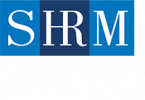Your Human Resources Department
When it comes to small businesses, Human Resources (HR) is a function that’s often left to the owner or an accountant. Some say HR is a hugely important. Others say it is inessential to the daily operation of a small business. What is the truth? When does HR become a necessity? Here is a very short and brief list of things HR does. If these seem short, it’s because they are! HR does so much that it would be a very long read if we were to put all of it into a single blog post. As we move throughout the coming months, each of these topics will be expanded upon in future blog posts.
What does Human Resources actually do?
HR does more than you might think. According to the Bureau of Labor Statistics, “Human resources managers plan, direct, and coordinate the administrative functions of an organization. They oversee the recruiting, interviewing, and hiring of new staff; consult with top executives on strategic planning; and serve as a link between an organization’s management and its employees.” This is a very formal definition that doesn’t really bite into the meat of what HR actually does. Here’s a more in depth look into a just a few things HR does regularly.
Business Strategy
Strategy is an important to any business, and HR is a big player in a company’s strategic plan. Because they are so involved with personnel issues, benefits, the legal environment, training, etc. HR typically has a good grasp on the company’s bigger picture. This makes them very helpful when conducting strategic planning activities such as attempting to define organizational direction, mission, vision, and goals.
Employment Law Compliance
HR professionals are also typically very knowledgeable of federal and state employment laws. When it comes to employee issues, they can coach organizational leaders in making the right decision both legally and ethically.
Consulting
Your HR team will also act as consultants to your organization. Because they have such a wide view of the organization as a whole, they are very good at understanding the strategic impact of the decisions that need to be made. This can include decisions such as implementing a new product or service, expanding a team, employee disciplinary action or terminations, and more.
Workforce Planning
HR helps to plan organizations’ workforces with tasks such as succession planning and training. They work with managers to ensure all employees are performing at their best, and are trained to do their job well.
Employee Record-Keeping
They are also the employee record-keepers of an organization. Typically, HR uses a program called a Human Resources Information System (HRIS) to keep records such as personnel, payroll, and confidential files.
Benefits Programs
Health, dental, vision, and life insurance are important to employees. So making sure your benefits programs are high quality programs is very important to retaining a high performing workforce. HR is typically involved in many aspects of company benefits programs such as negotiating, monitoring, and administrating them.
Recruitment
Recruitment is another aspect of the Human Resources function. Knowing how, who, and when to hire is a skill many HR professionals take pride in. They will often use a program called an Applicant Tracking System (ATS) for this function. Sometimes, the HRIS they use will have an ATS already integrated into it. They post jobs on various job boards, attend job fairs, hold recruiting events, maintain resumes, review resumes, interview, and hire within the scope of legal and ethical boundaries.
How many Human Resources employees do I need?
Depending on the industry you’re in, you should have around one to two HR personnel for every 100 employees. For companies with 50 to 100 employees, one HR personnel will get the job done. But for companies with less than 50 employees, hiring an HR consultant is typically a more cost effective way to manage your HR function.
Is certification important?
There are quite a few certifications on the market today, but at the core of HR there are really only four. They are PHR, SPHR, SHRM-CP, and SHRM-SCP. PHR (Professional in Human Resources) and SPRH (Senior Professional in Human Resources) are offered by the Human Resources Certification Institute (HRCI). But the Society For Human Resource Management (SHRM) offers the SHRM-CP (SHRM-Certified Professional) and SHRM-SCP (SHRM-Senior Certified Professional).
These are important to HR personnel because it means they’ve been tested and certified in their field. The tests are quite rigorous and cover a range of topics from employment law to corporate strategy. Hiring a certified HR professional will ensure your company is in the best possible position to succeed.
The Bottom Line
This brief list is certainly not exhaustive. There are tons of things HR pros do in companies big and small every day. At the end of the day, Human Resources professionals are in place to strategically impact the way people work within an organization. HR affects every stage in the employee lifecycle, from recruitment to retirement and as such, having a solid HR team in place is critical to success.




